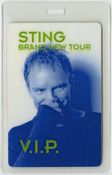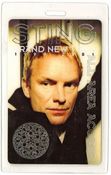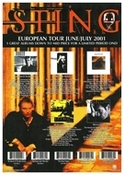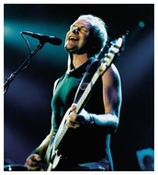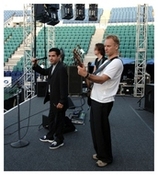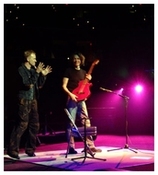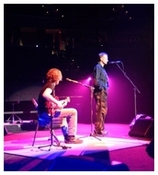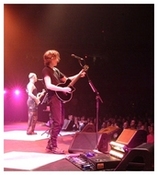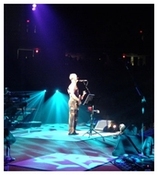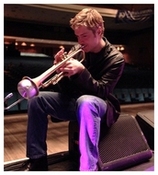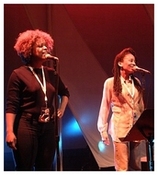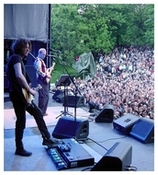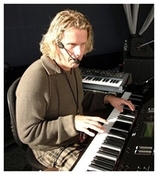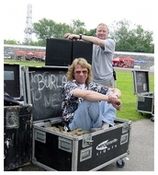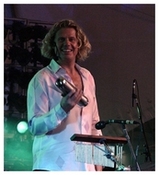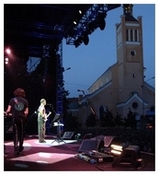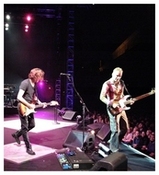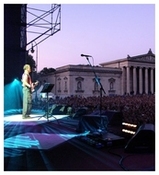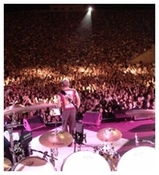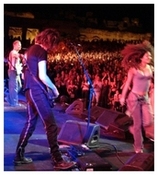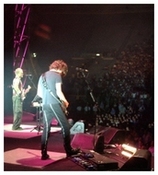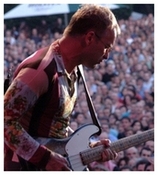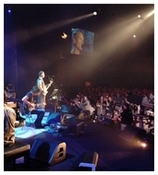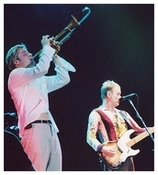
Sting at "Live at Sunset": A sensitive star in a cosy atmosphere...
Sting was there. He enchanted his fans in front of the Zurich State Museum on Sunday. The English pop star performed his latest and old hits with energy, power, and soul.
The courtyard of the Zurich State Museum, where the "Live at Sunset" concert series takes place, only has a capacity of 2,500 people. It's no wonder the concerts sell out quickly. Recently, Sting's tickets were traded like rare jewels, and anyone who managed to snag one was lucky enough to experience the star in a cosy outdoor setting and up close.
"What a beautiful place," says Sting as he steps onto the stage, smiling as he surveys the museum walls and the blue sky of the glorious summer evening. The first songs lift off quietly and gently: "A Thousand Years" and "Ghost Story" from his latest album, "Brand New Day."
Then Sting, who at almost fifty is still in full swing and captivates with his dry charm, puts his foot down. The rhythms charge forward unhindered, the sound meanders unerringly between rock, pop, soul, jazz, country, and oriental sounds. With heart and soul in his voice, Sting conjures the vast expanses of emotions and galaxies his songs speak of.
Sting and his band enchant the audience with well-known hits from "The Dream of the Blue Turtle," "The Soul Cages," "Fields of Gold," and others, demonstrating that the charismatic star is (even) better live than on CD.
Sting expands the song 'Roxanne' and drives it forward, as if he were chasing 'Roxanne' on a wild ride through the desert. 'Desert Rose' shows how he lets Arabian sounds roll through his throat like pearls.
It's excellent how Sting and his band repeatedly stir up the romantic flow of the songs with jazzy dissonances and whip them up into a rocky frenzy, gathering it again and letting soulful spheres flow.
As the sun sets behind the museum walls, the stage and audience are bathed in yellow and pink spotlights. Hardly anyone is still sitting in their seats. The audience sings along to the songs, dances rapturously, while Sting and his bands beautifully prove that they are at their best.
There's no doubt about it: Sting is still a phenomenon. The star, who has been committed to environmental protection and human rights for years, knows how to blend musical styles in a way that defies arbitrariness. His onstage movements are succinct, lanky, yet extremely powerful, and his voice and guitar sounds are unerringly soulful.
Smiling, he takes a bow at the end and runs offstage to play one of his most beautiful songs as an encore: "How fragile we are...". His guitar delivers the final note so electrifyingly, as if it were bursting a soap bubble, which disappears into a floating shimmer.
(c) SDA by Eva Bucher
Music against melancholy - Sting on "Live at Sunset"...
One could easily have become melancholy. Sting opens his long-sold-out concert on Sunday evening with a quiet, fragile version of 'A Thousand Years,' musing on the defiant hope that individual love endures in the infinity of the world. But that was likely just the dramatic trick of a savvy entertainer to make the rest of the concert seem all the more upbeat. From now on, a good mood prevails, just as the youthful Sting radiates, even though he turns 50 in October. The dark songs of the early 1990s, when he was in the grip of a major existential crisis and, as a pop preacher, wanted to rid the world of all possible evil, are either not performed or only in lively versions. The focus is on the spirit of optimism of his last album, from which many songs, including the title track 'Brand New Day,' are performed. The audience appreciates this direction. Already by the third song, 'All This Time', the audience is clapping along enthusiastically.
Sting rewards it and gives it what it wants – Sting classics like 'Moon Over Bourbon Street' and Police hits that demonstrate his early talent for blending styles and paring songs down to their essentials. The pieces are barely altered, but played with more vitality than on record, so they don't seem like mere nostalgia-mongering. It's striking that Sting no longer primarily expands the simple form of his pop songs with virtuoso jazz elements, but increasingly incorporates cosy country influences. Sting has truly become the 'Englishman in New York' – this piece, too, is a hit that brings the audience to their feet. During 'Roxanne,' interspersed with disco elements, the audience can finally hold back no longer and sings along loudly, leading to the all-too-familiar repetition. The musical highlight, however, is the gripping interpretation of "Desert Rose," because the embellished Arabic elements don't undermine the song's conciseness, but rather enhance it. Sting is not only an artful eclectic, but also a master of nuances of sound and emotion. However, this ability has all too often been destroyed by the poor acoustics of many stadiums in live performances.
Not so in the comparatively small courtyard of the State Museum. The transparent sound thus reinforces the exclusive character of the concert. The excellently coordinated band also contributes significantly to the sound quality. The musicians smoothly blend the different stylistic elements. Sting, whose singing is strikingly clear and relaxed, increasingly leaves room for solo interludes towards the end of the concert, so that 'When The World Is Running Down You Make The Best Of What Is Still Around' turns into a veritable jam session. With the closing song, 'Fragile,' he breaks the defiant optimism hinted at in the last track and ends the concert thoughtfully, as it began.
(c) Neue Zürcher Zeitung by M Ganz
Englishman in Zurich - The friendly Mr. Stachel...
Sting's every breath was the pop statement of a sophisticated fifty-year-old. At first it was strange, then came the old hits: Sting played at the National Museum on Sunday.
Department store music has a face, namely that of Sting, the highly decorated political correctness on two legs, dressed in a shirt like something from UNESCO merchandising. A trickle, a tinkling, a muted trumpet wails softly. Perhaps Sting didn't have time to warm up backstage, because it seems as if he's doing that during the first two songs. The applause is certainly more enthusiastic than what's coming from the stage. Astonishing: All 2,800 seats in the beautiful courtyard of the State Museum are sold out. Why? Because of that guy?
It gets better. Later. At the very latest, when his hits from the old days follow. But before that, the newer Sting poses a mystery. A mystery, at least, with recognition value, because his voice could easily be identified as his own among a thousand other throat sounds. His vocal lines, however, aren't sing-alongs; they seem intellectual or meditative, like a sung yoga class, only the chorus is often simple. The music is friendly, unexcited, and catchy, rarely averse to influences, the pop statement of a sophisticated fifty-year-old. Sounds from other cultures resonate, the trumpeter even plays fanfares. And what one might expect, he doesn't do: He doesn't put a DJ in the corner to supposedly bridge the gap to the modern age, as many of his peers do. Sting is peculiar. An environmentalist in a yuppie outfit. A teacher who became a punk. A family man who is a diligent member of the jet set. Not many have made it from bassist to frontman, but he has. While one keyboard player can be a nuisance in a band, Sting brings three. His fellow musicians are his friends, a committee that makes music. A staff room on a field trip. Wanderlust is often palpable in these sounds. Accompaniment to a film whose scenery everyone already knows: empty streets, steaming mine shafts, the heart of someone who isn't there.
After his slow start, the anxious question soon arises: Will he be able to save this? It wouldn't have been surprising if an audience member, who had to pay up to 160 Swiss francs for a ticket, had thrown his Indonesian noodle dish onto the stage. Or if someone had decided to at least take home their chair as compensation. But the audience likes this man, this slightly mischievous Gordon Matthew Sumner from Wallsend near Newcastle, and forgives him the weak start. After 45 minutes at the latest, a gradual build-up and 'Every Little Thing She Does Is Magic', the first hit from the extensive repertoire of his old band The Police, everything is over anyway. While opinions are often divided about him as a solo artist, everyone loves his early work. Extended live versions follow, and his guitarist, in particular, who, judging by his demeanour, is the master's favourite student, is often given the opportunity to play the strings for long periods. After 'Brand New Day' comes 'Englishman In New York'; everyone stands and dances, except for a few grumpy husbands in the back rows who remain crouching and crushing their beer mugs. Sting ignites enthusiasm and pyrotechnics, flames lick from trash cans on stage, glaring spotlights illuminate the courtyard, because now it's time for 'Roxanne,' where an extended sing-along is a must. To cool things off, he serves up one of his shaman-businessman-rainforest songs before leaving for the first time at 10 p.m. sharp with a thrilling piano solo.
He's back immediately, singing 'Every Breath You Take,' prancing, stalking from one fellow musician to the next, and finally putting the bass aside to play a Latino-jazz farewell song on the acoustic guitar. The friendly Mr. Stachel (''Sting'') then leaves us for good. He got his name because he apparently liked to wear a black and yellow sweater a lot. He's since given it up, but he's kept the name. He's also not missing out on his hits, for which people have duly thanked him.
(c) Tages-Anzeiger by Samuel Reber

